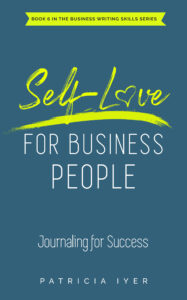Journaling for Success
Journaling for Success
What it Is and How it Can Help You
Journaling for success helps you in many aspects of your life and LNC business.
- Have you ever sat in front of a computer, knowing you must get out a report, a speech, or a blog post, and not knowing what to write?
- Have you watched time pass, feeling tense and agitated as your deadline approaches?
- Did the combination of external and internal pressure make writing even more difficult?
Do you relate to any of the following questions?
- Did you ever struggle with writing a persuasive response to an email from a prospect with many questions?
- Do you have great ideas you don’t know how to express in writing?
- If you need to prepare a proposal that depends on a logical sequence of ideas, do you have trouble organizing your ideas? Do you have difficulty coming up with ideas?
- Do you feel that your writing is too stiff and formal and fails to communicate your enthusiasm?
- Do you worry about what is at stake when you struggle to write?
- If you are an employee, do you feel that the difficulties in writing jeopardize your job?
- If you are a boss or solopreneur, do you envision your dream dissolving because you can’t communicate its value and benefits to others?
 The problem is that many of us are not comfortable writing. My book, Self-Love for Business People: Journaling for Success, provides a pathway to overcoming that challenge so business writing flows more easily.
The problem is that many of us are not comfortable writing. My book, Self-Love for Business People: Journaling for Success, provides a pathway to overcoming that challenge so business writing flows more easily.
Why good writing is important
- You’re reading this because you want to have greater ease and ability in writing. You know that learning to write well can help you in your business, your newsletters, blogs, reports, and emails.
- You want to show your professionalism and competence.
- You must communicate who you are.
- it is critical to establish your brand, and
- You want to help ramp up your ability to make a sale through persuasive writing.
Mastery of writing will also boost your self-confidence, and this feeling will improve your performance in other areas of your work.
What’s the solution?
You can learn to write well by writing every day. That’s much easier than it may sound. Five to ten minutes daily will get you into practice, deepen your confidence, and encourage you to go further.
Focus on making daily writing not only easy but also rewarding and enjoyable.
Getting some formal education in writing will help you a lot. This training could mean taking a self-paced or live course, getting a coach, reading good books about writing, and reading in general.
Don’t read-only in your field. Read widely, study how people use words, and develop feelings for different writing styles.
In the end, though, none of these practices will help you unless you WRITE. And that’s where people falter.
Those who feel the most frustrated about their seeming inability to write are generally the ones who have written the least. They have writer’s block before they start because they may be too afraid of failure to try.
You can learn to write without pressure, anxiety, and, perhaps most importantly, without the requirement to show your writing to anyone.
I will repeat: Journaling doesn’t need to take more than five to ten minutes a day. You’ll learn how to accomplish this with the practical suggestions in this book.
Why People Journal
Most people need more than a few inspirational words to encourage them to begin journaling. You need to have a clearly defined “why.” That “why” will at least motivate you to start and continue to journal.
Motivation alone will not yield you the total rewards of journaling. Once your practice is firm and you’ve begun to see some rewards, inspiration will follow.
Here are some reasons that may get you started in journaling.
You can begin a healthy lifestyle and use your journal to keep yourself accountable. Plus, you can track workouts, eating, and weight loss.
You can also ask yourself how you feel about these behavioral changes. Perhaps you’ll write:
- When I first get on that exercise bike, it feels like the workout will never end.
- I pass a bakery shop, and I want to run in and buy cookies.
- I have no patience. I want to lose ten pounds in the first week.
- I feel deprived all the time.
These statements can serve as prompts to get your writing further.
You can launch a conscious debt reduction program and track your progress through journaling. Note your initial level of debt, set a time-related goal for eliminating it, note your expenses, and record when you’ve resisted the temptation to spend unnecessarily.
You can use journaling to help build your business or create something new. This idea takes us back to journaling as a way to further your business goals. You can use journaling to chart your goals: weekly, monthly, annual, and more.
Even if you have a one-, two-, or three-year plan, journaling daily can help you identify and track weekly and monthly goals that fit within the larger plan. Doing this can allow you to celebrate your accomplishments and note where to pay more attention.
You can also use journaling to envision a new business. Freewriting without censorship can quickly launch you into a creative mode. “I would love to . . .” Allow your creative visions to fly. When you’re ready to build them into something substantial, you’ll have a record of your dreams as raw material.
Journaling for Success
Can you do multi-journaling?
You might be thinking, “I want to improve my health, and I have money issues, and both the health and the money issues affect my ability to build my business. Do I need to have three journals?”
That’s a good question, and it points out that no problem exists in isolation. Stress affects health. For example as well as business worries impact the ability to sleep. Unfortunately, money problems can cause people to reach for doughnuts and other comfort food.
That’s the bad news. The good news is that when you make progress and track that progress in any of these areas, you will see improvements in how you handle the others.
The best news is that when you take up journaling as a regular practice, you might be writing about how irritated you are with a difficult client and remember that after your most recent disagreement with him, you reached for that doughnut. You now have a lot to write about. You might realize you couldn’t focus on the business proposal you needed to write after that confrontation.
The problems don’t exist in isolation, and neither do the solutions. I will provide an expanded description of this kind of connection in an upcoming book.
Because of this, I strongly do not recommend writing several journals at once. That chops your life into pieces. In addition, keeping several journals is understandably going to seem like a lot of work, which may prevent you from keeping even one journal.
It could be cumbersome to keep more than one journal regularly. However, I can think of workarounds.
You want to focus on a healthy lifestyle and debt reduction. You could go minimal and use a calendar—one with a week per page might be ideal—in which you note a workout, daily calorie intake, and any other health-generating activity, like yoga, meditation, etc. Keep journals with brief entries limited to the facts.
You can establish a similar format for a debt reduction journal. Use a calendar or devise a chart that tracks your progress. For example, assign a deadline, such as June 10: Paid off the credit card.
When you’re feeling resistance, resentment, or any other emotion that threatens to achieve your goals, keep a separate, more expansive journal. Write down your feelings about eating more vegetables than starch, for example, or that beautiful pair of shoes you decided not to buy.
Access these subjects in your journal by color coding the date of entry for the subject matter or by putting the subject with the date.
Remember to record your feelings of triumph, relief, joy, etc., about your accomplishments.
“It felt so good to pay off that credit card. It was like a stone rolling off my back. I still have a few more stones to carry, but now I have the encouragement of knowing that I can remove them.”
This is just the beginning of learning how to journal.
My book, Self-Love for Business People: Journaling for Success, will take you deep into the process of journaling. Grab your copy today and be ready to take notes.

Pat Iyer is president of The Pat Iyer Group, which develops resources to assist LNCs in obtaining more clients, making more money, and achieving their business goals and dreams.
Pat’s related websites include the continuing education provided on LNCEU.com, the podcasts broadcast at podcast.legalnursebusiness.com, and writing tips supplied at patiyer.com.
Get all of Pat’s content in one place by downloading the mobile app, Expert Edu at www.legalnursebusiness.com/expertedu. Watch videos, listen to podcasts, read blogs, watch online courses and training, and more.


